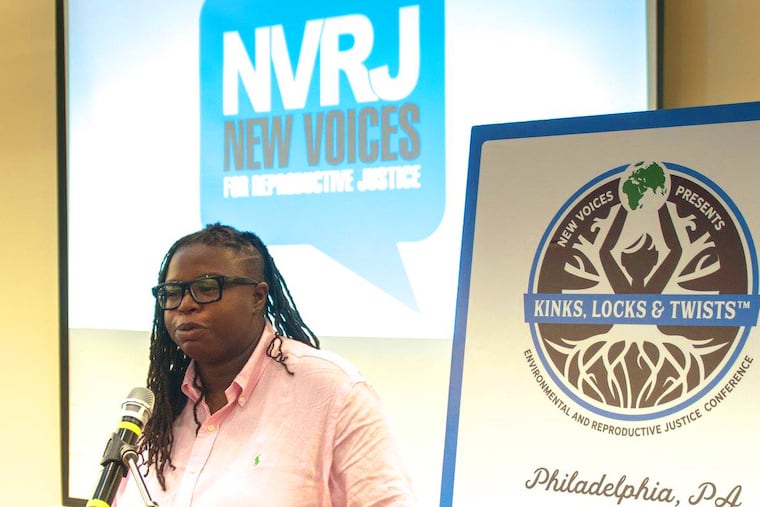Decades after `Roe,' black women are still denied reproductive justice | Opinion
Roe v. Wade characterized a woman’s right to end a pregnancy as “fundamental,” but that hasn’t stopped laws that push abortion out of reach for poor women, young people, and people of color across the country, including here in Pennsylvania.

Our society does not trust or believe black women when it comes to our health and bodies. There are examples of this everywhere. Serena Williams, even with her wealth and fame, had to demand the medical care that saved her life after childbirth. Decades of allegations against R. Kelly were met with silence because they came from young black women and girls. Black women are more often shamed, questioned, and silenced when we speak about our own bodies — when we are saying #MeToo, when we know something is wrong during or after pregnancy, and when we speak up for abortion rights.
Jan. 22 marks 46 years since the Supreme Court legalized abortion with its Roe v. Wade decision. This decision characterized a woman’s right to end a pregnancy as “fundamental,” but that hasn’t prevented politicians from passing laws that push abortion out of reach for poor women, young people, and people of color across the country, including here in Pennsylvania. With the balance of the Supreme Court now turned against abortion rights, we face the real threat of abortion care being further dismantled or outlawed entirely. As we reflect on the future of abortion rights, it’s important to remember the ways in which black women have not been able to exercise full bodily autonomy in America.
Due to the greater barriers black women face in accessing sex education, contraception, and basic health care of any kind, we are more likely to need abortion care. That means that restrictions that make it more difficult to obtain an abortion disproportionately harm black women.
Since 2011, states have adopted more than 400 laws restricting abortion. Women in Pennsylvania seeking an abortion must receive state-directed counseling designed to discourage them from having an abortion, then wait 24 hours before receiving care. This means Pennsylvania women must take added time away from work, school, and family for two appointments, plus extra travel. Such requirements especially burden single mothers, women with low incomes, and those living in rural areas.
Just three years after Roe v. Wade, Congress passed the Hyde Amendment, which stole the right to abortion coverage from any woman enrolled in Medicaid health insurance. Over the years, the Hyde Amendment has paved the way for other federal and state-level abortion coverage restrictions. In Pennsylvania, public insurance programs cover abortion only if a woman’s life is endangered, or in the case of rape or incest — a policy that women’s health advocates are challenging in court.
The Medicaid abortion ban makes abortion inaccessible for Pennsylvanians who are struggling financially, and abortion providers are suing the Pennsylvania Department of Health to end the harm inflicted on Pennsylvania women and families just because they’re poor. A woman who pays for an abortion out of pocket may be forced to delay the procedure to raise the necessary funds, and a woman who wants an abortion but is denied is more likely to fall into poverty or economic insecurity that, research suggests, can last for years.
Forcing anyone to carry an unwanted pregnancy to term is cruel, but this is especially so for black women, who constitute only 11 percent of Pennsylvania women but account for 31 percent of all pregnancy-related maternal deaths in the state. This disparity is reflected across the country and cannot be strictly attributed to lack of insurance coverage and access to health care. It is a problem that afflicts black women of all socio-economic standings and is increasingly linked by researchers to systemic racism, which afflicts all black women.
When we say that black mothers, black girls, black women matter, we are saying that our needs deserve support and our voices should be heard. In the coming year and beyond, there will be much work to do to protect our existing rights as women. Black women have been leading the fight so that the promise of Roe v. Wade, the ability to make the most personal decisions — whether and when to parent, to say no to sexual advances, to have dominion over our own health and lives — is realized for everyone. Our unapologetic leadership and advocacy continue. We invite you to join us.
La’Tasha Mayes is the founder and executive director of New Voices for Reproductive Justice, headquartered in Pittsburgh.